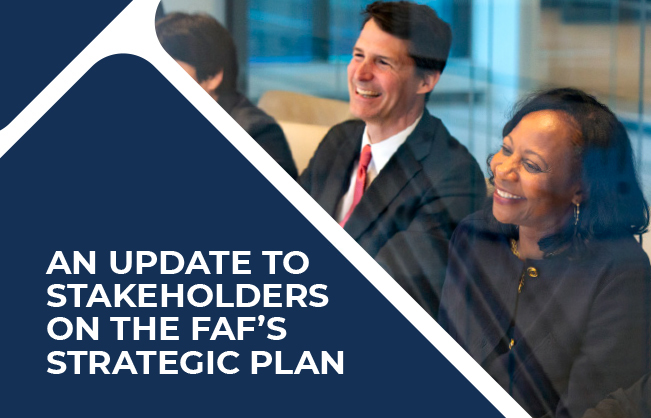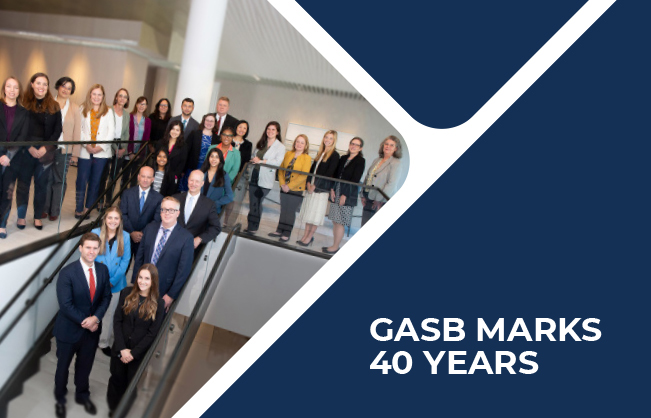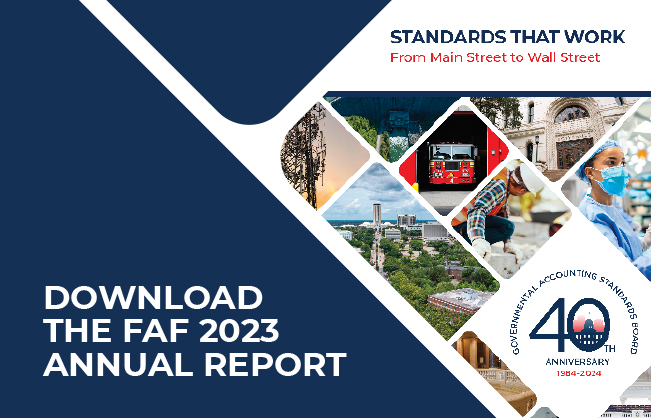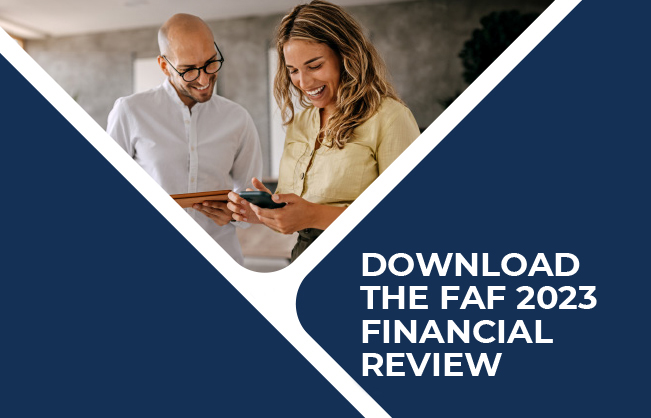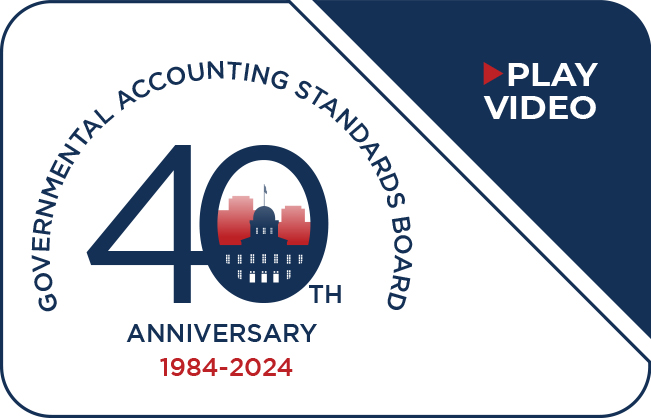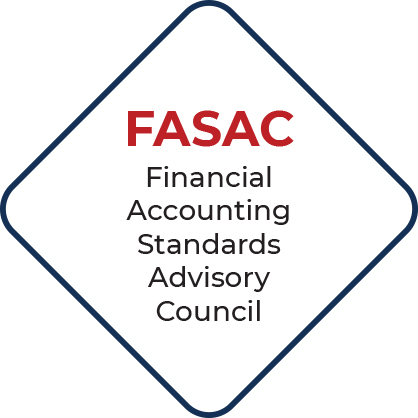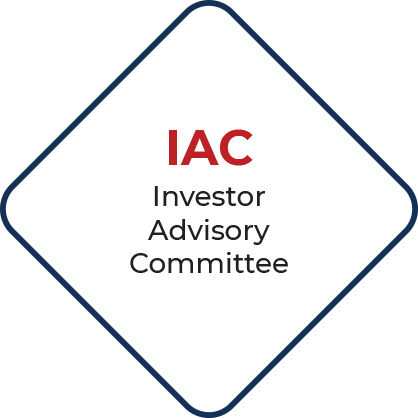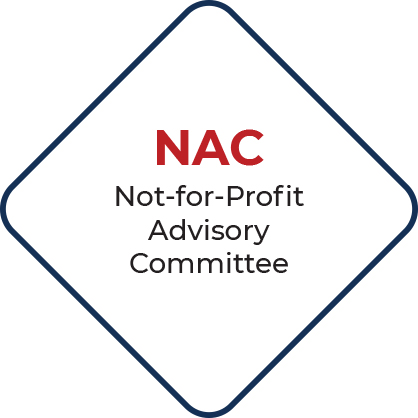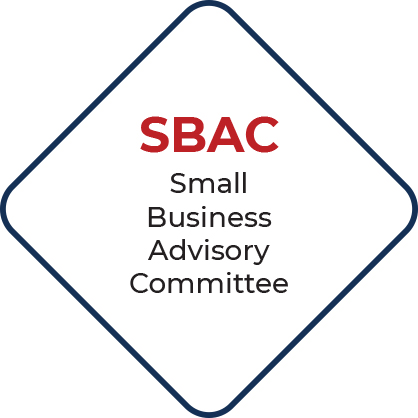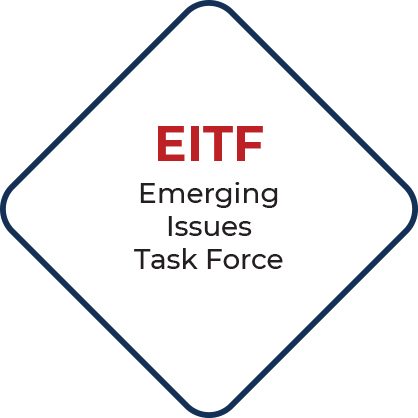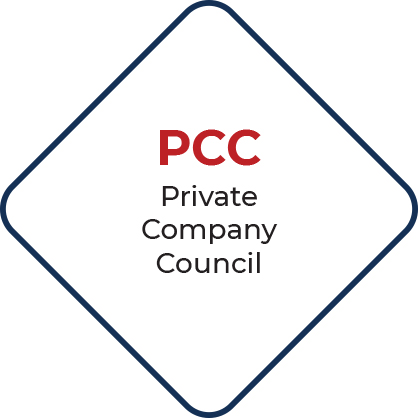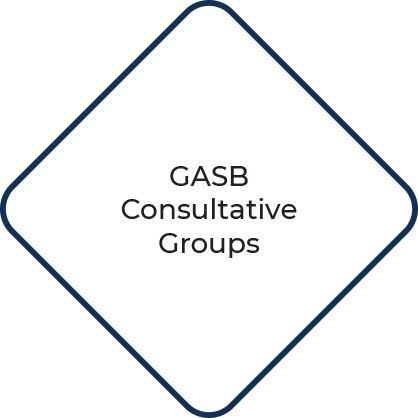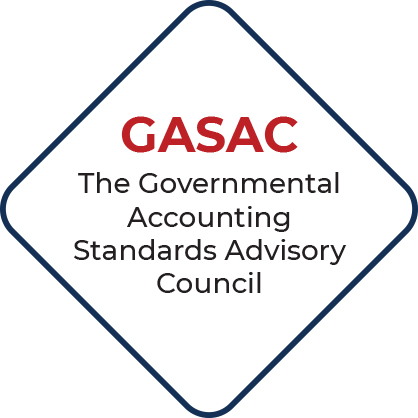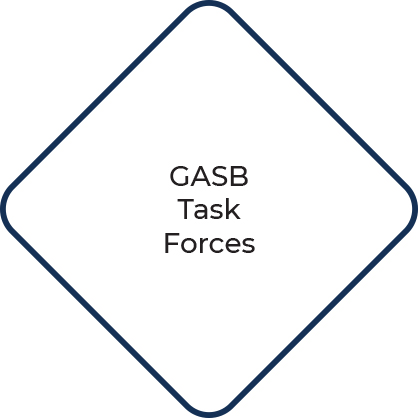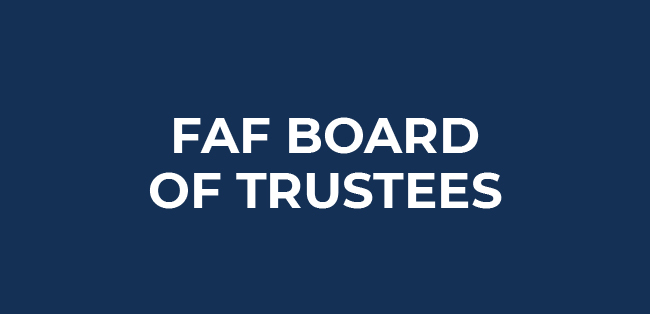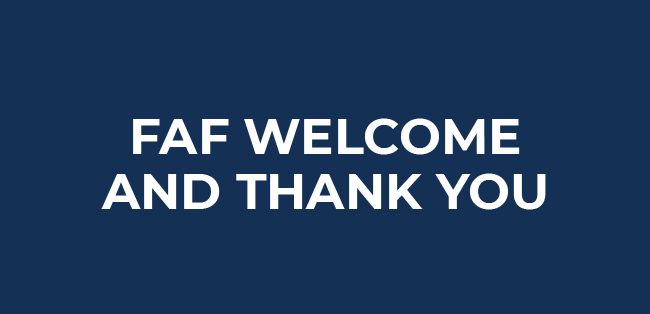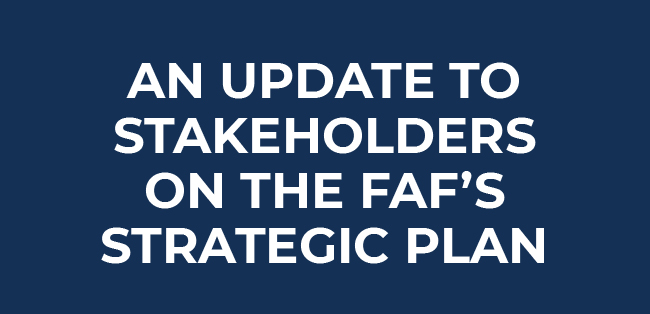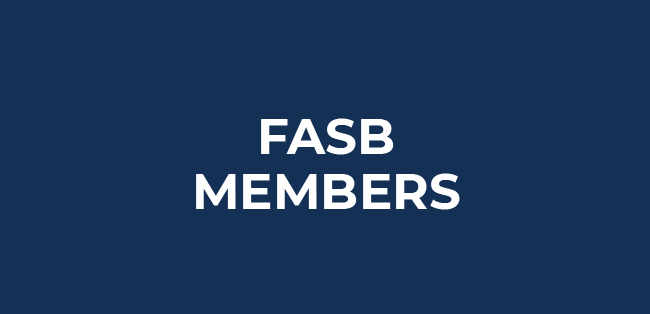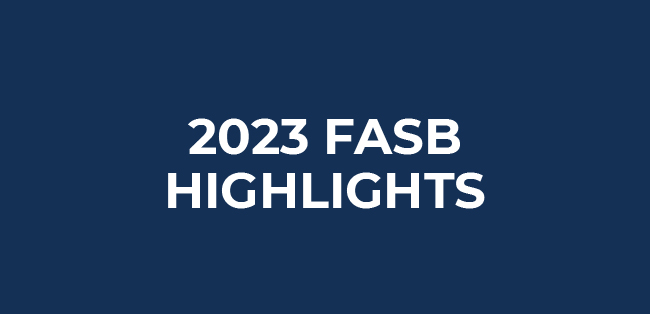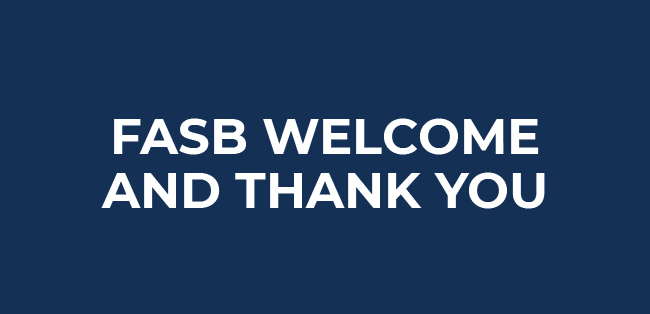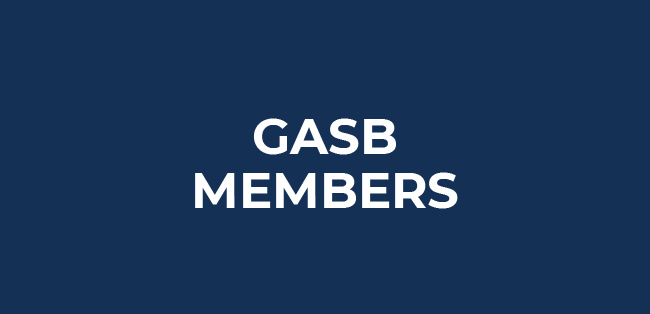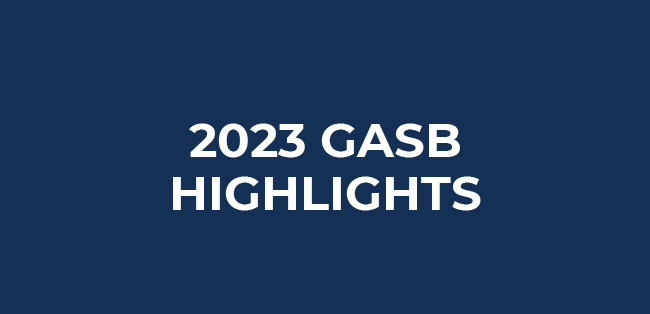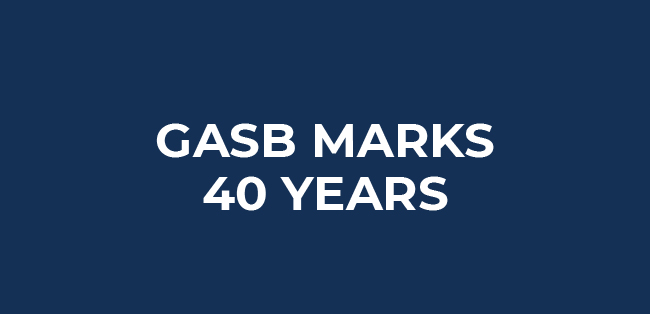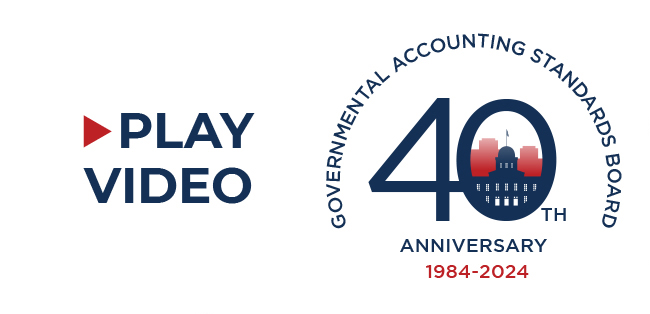GASB MARKS 40 YEARS
2023 Accomplishments and Looking Ahead
In 2023, the GASB saw important progress in both standard-setting areas and other operational improvements that are important to furthering the Board’s mission. Looking toward our 40th anniversary and beyond, we are focused on how technology is impacting the evolution of financial reporting, how we do our work, and how we can leverage it to serve our stakeholders better.
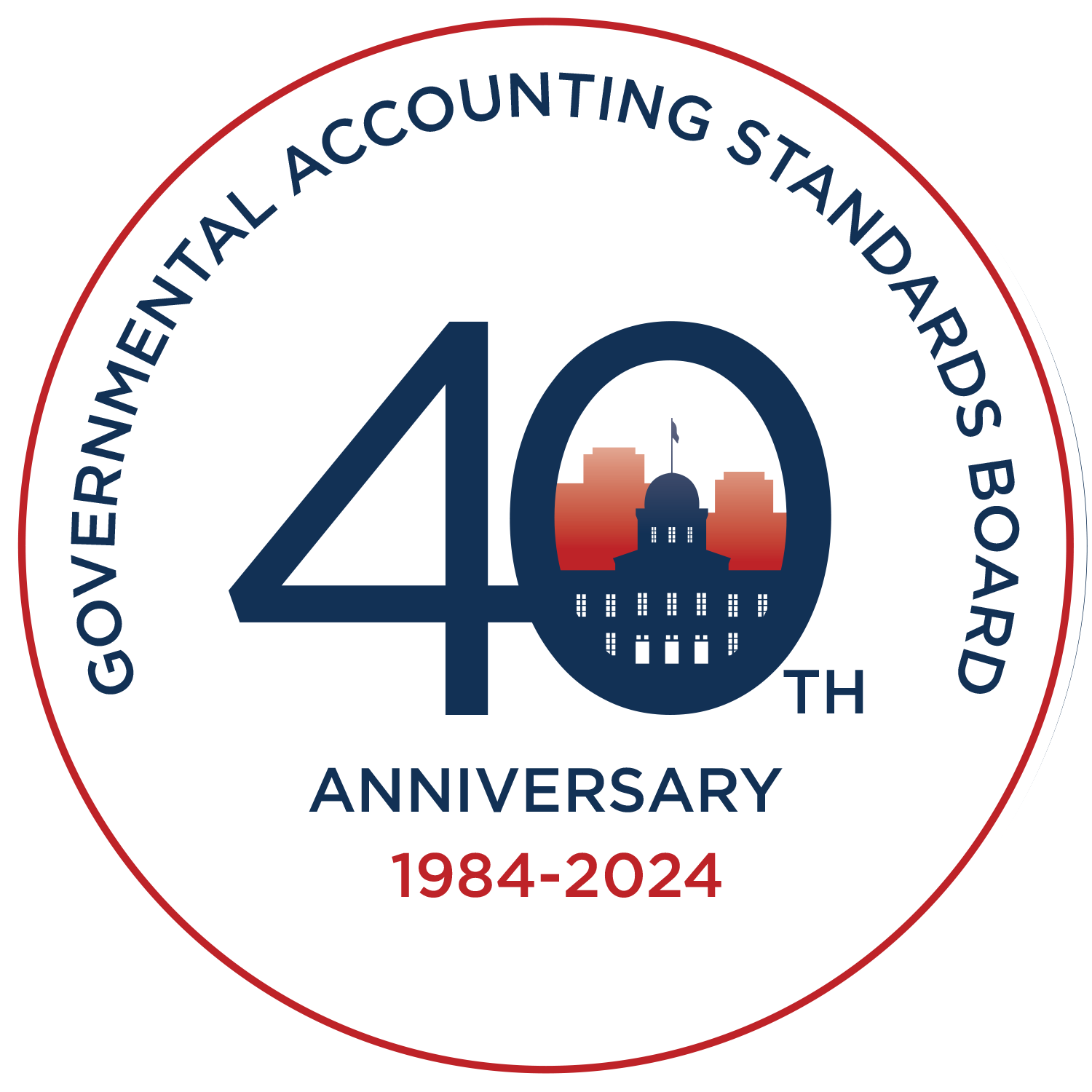
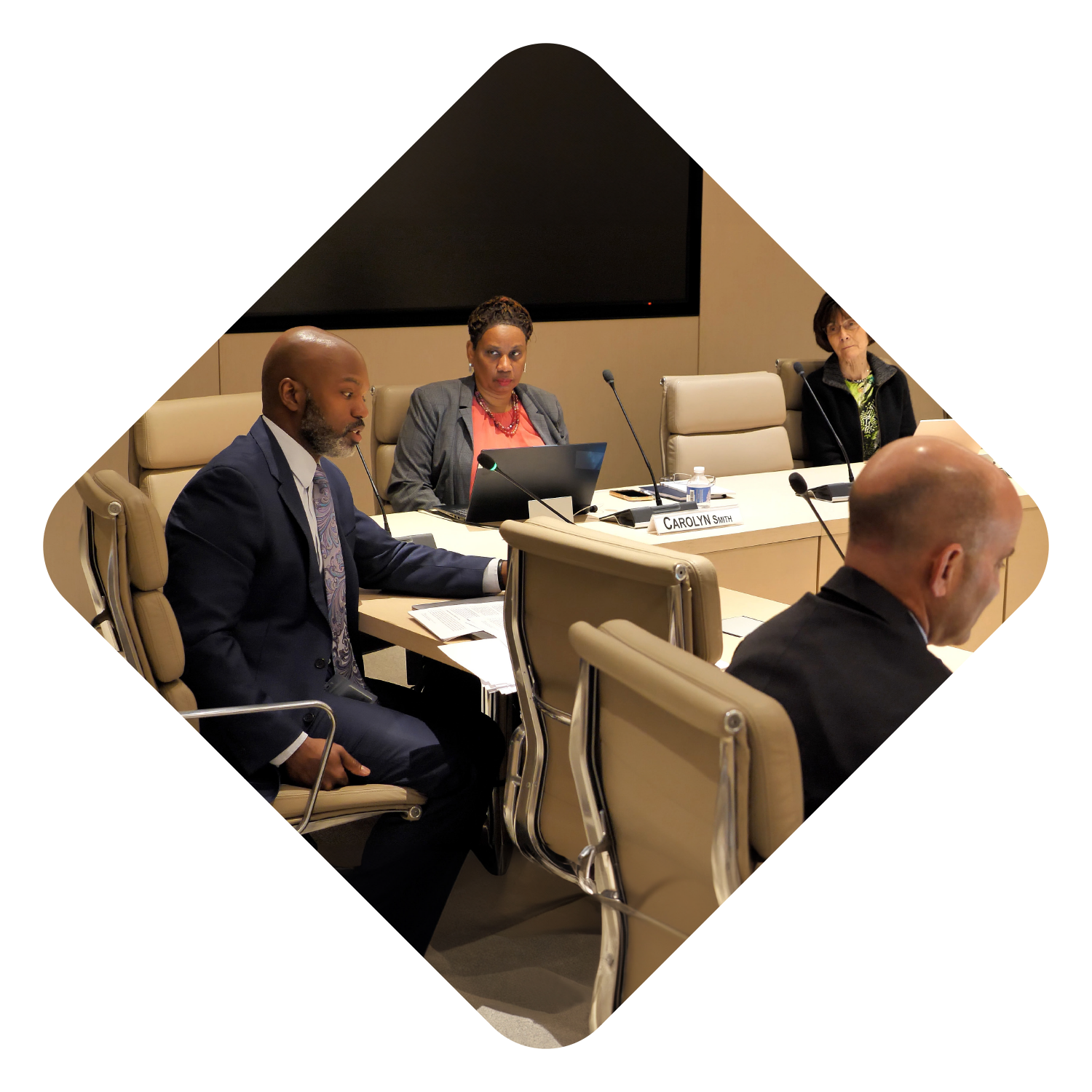
The GASB made progress in key areas of governmental accounting and financial reporting, issuing new guidance on certain risk disclosures and proposed standards on disclosure and classification of certain capital assets. The Board also reached critical decisions in its long-term comprehensive projects on the financial reporting model and revenue and expense recognition.
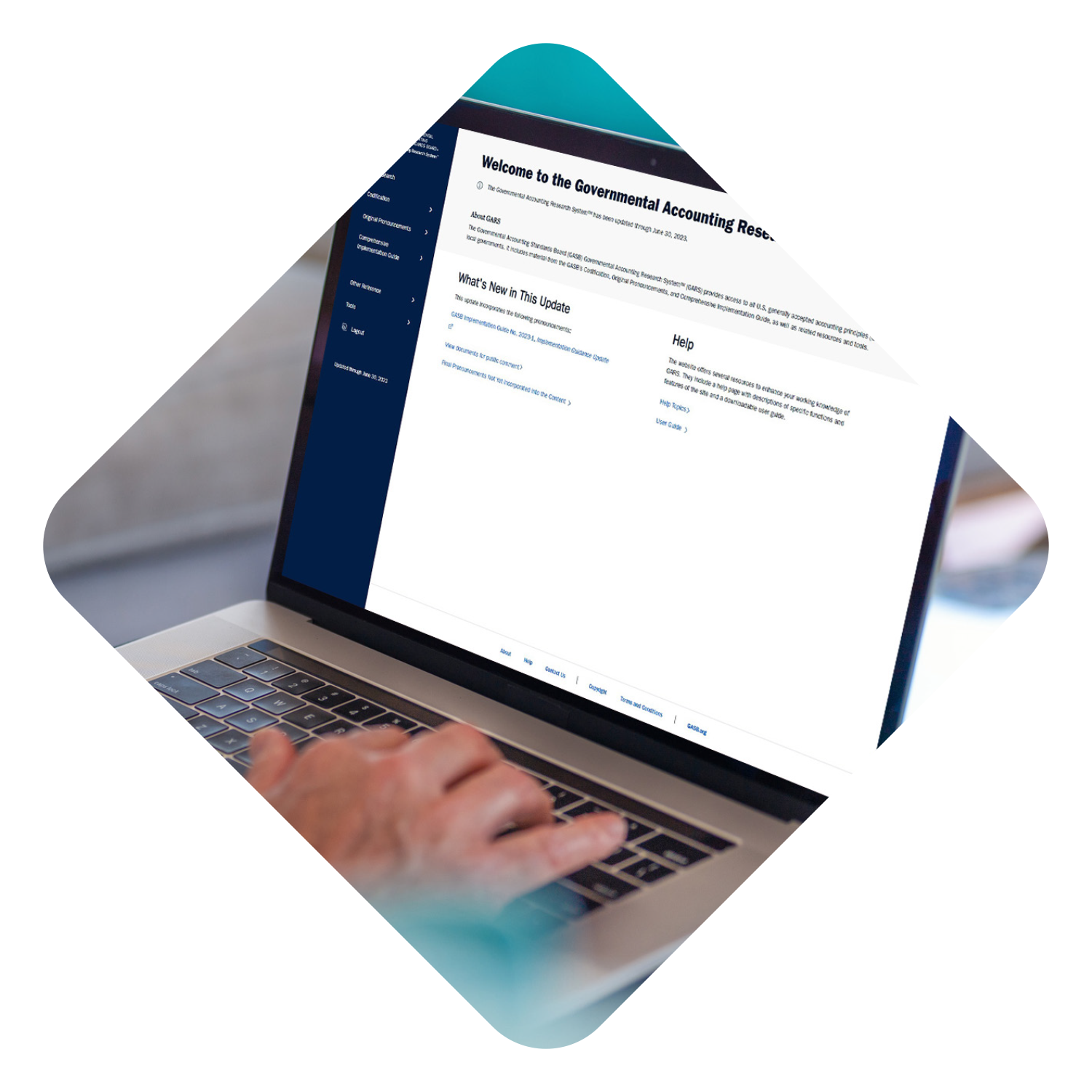
In early 2023, the GASB made significant improvements to its Governmental Accounting Research System™ or “GARS.” The updated version offers a more modern interface and other enhancements that make it easier for stakeholders to access GASB literature and conduct research more efficiently. GARS is available to all of our stakeholders at no charge.

The GASB is closely monitoring the evolution of electronic financial reporting. With the Financial Data Transparency Act (FDTA) in the rule-making phase, we are prepared to play a positive role in the process. Our work is underway on a governmental financial statement taxonomy that, once complete, could voluntarily be used to prepare machine-readable annual financial statements.
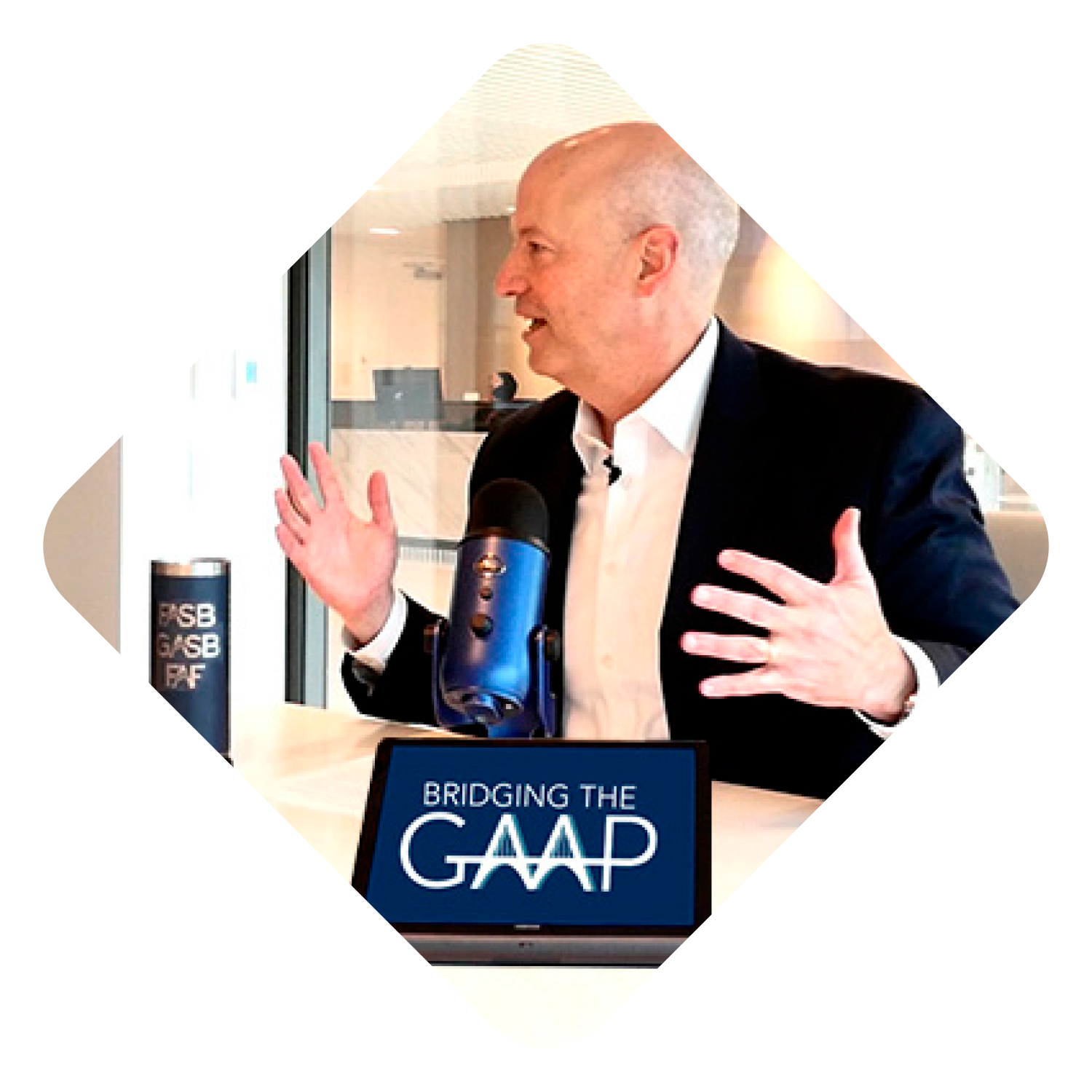
GASB launched a new podcast series in 2023 that offers episodes focused on critical standard-setting issues and other governmental accounting topics that stakeholders may find informative. Our first several episodes looked at proposed new guidance, the FDTA, and the latest version of GARS. Take a listen and subscribe today.

GASB and the Governmental Accounting Standards Advisory Council (GASAC) held their 2023 summer meeting in Denver in conjunction with the American Accounting Association’s (AAA) annual conference. The GASB received input on several project areas from the GASAC and interacted with AAA members to discuss ways they can benefit from working together.
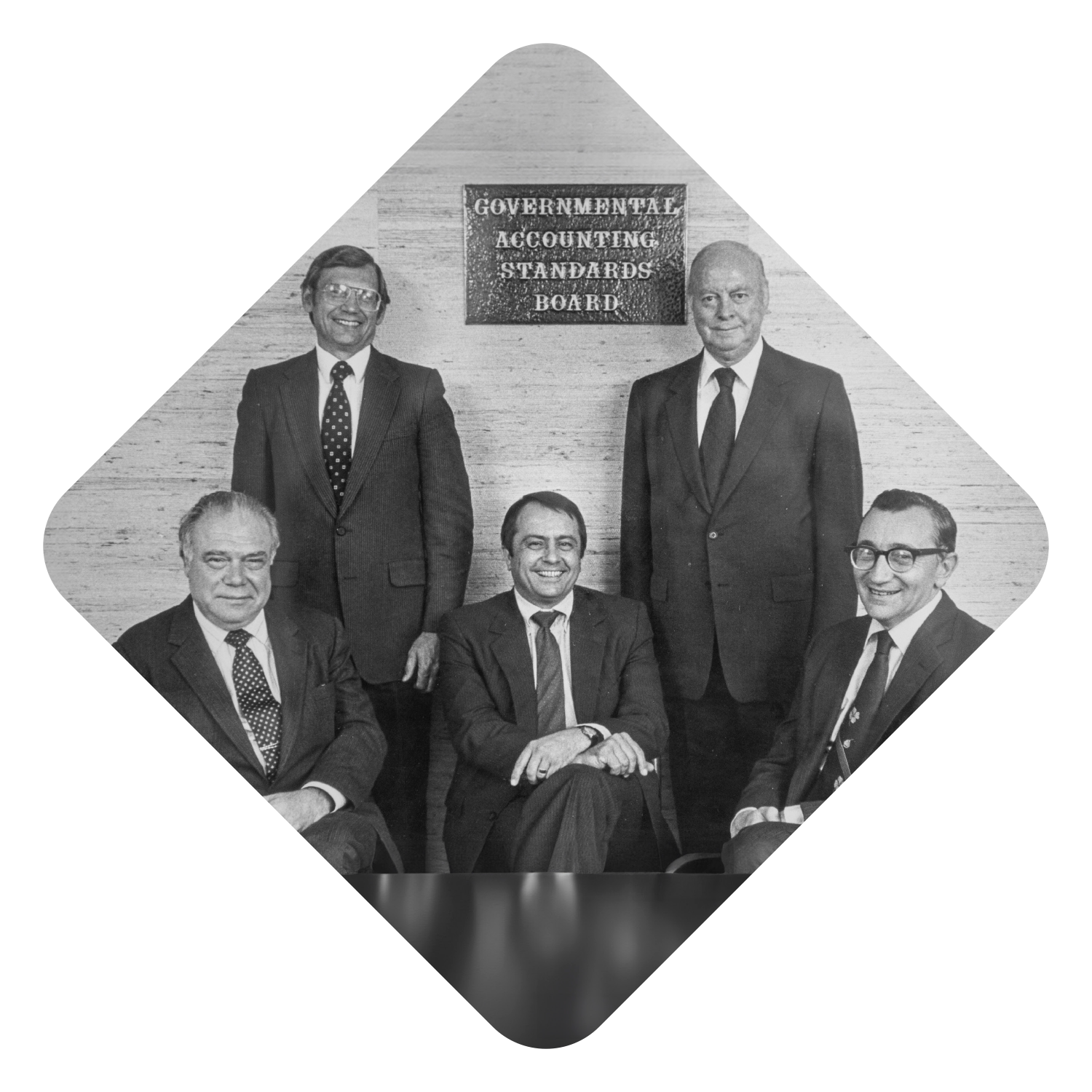
This year, we honor the legacy of those who have served on our Board and staff over the past four decades. We are grateful to the thousands of stakeholders who have shared their time and talents with us over our history to help us improve governmental accounting and financial reporting. We look forward to your continued engagement as we work toward the future.
Standards That Work From Main Street to Wall Street

The Financial Accounting Foundation (FAF), strives to provide effective, efficient, and appropriate stewardship of the Financial Accounting Standards Board (FASB) and the Governmental Accounting Standards Board (GASB) to assist them in their respective missions, focused on establishing and improving high-quality financial accounting and reporting standards that provide useful information to investors, and other users of financial reports, and improving all stakeholders’ understanding of these standards and prepares’ ability to implement then effectively.
Under the FAF’s bylaws, its role within its oversight responsibilities is clear. The FAF takes care not to impair the independence and objectivity of the respective Boards in making their standard-setting decisions. The FAF and the Boards maintain alignment through constant dialogue and the shared commitment to serve the needs of all stakeholders.
Our Mission
Our mission is, through governance and oversight, to ensure that the Financial Accounting Standards Board and the Governmental Accounting Standards Board fulfill their respective missions that are focused on establishing and improving high-quality financial accounting and reporting standards that provide information useful to investors and other users of financial reports, and improving all stakeholders’ understanding of those standards and preparers’ ability to implement them effectively.
- The FASB and the GASB (the Boards) set standards through a process that is robust, comprehensive, and inclusive.
- The FAF Board of Trustees provides oversight and promotes an independent and effective standard-setting process.
- The FAF management provides strategic counsel and services that support the work of the standard-setting Boards and Board of Trustees.
An Update To Stakeholders On The FAF's Strategic Plan
Our organization moved forward on many fronts in 2023 to fulfill our commitments to stakeholders in the first full year of our new strategic plan. These activities notably involved people at many levels of our organization from FAF Trustees through leaders and staff at the FASB, GASB, and FAF. This “all-hands” approach was the foundation for progress we made in addressing our six strategic priorities. We are pleased to share with you some of the highlights of our work during the year.

GOAL #1
In service to the public interest, promote the importance of independent standard setting to capital markets
- FASB and GASB leaders met regularly with Members of Congress and their staff during the year to brief them on Board activities and to answer questions about current and future projects. Topics of interest included FASB’s new standard on income tax disclosures and GASB’s potential role in implementing the Financial Data Transparency Act. In December, FASB Chair Rich Jones testified and responded to questions at an oversight hearing held by a subcommittee of the House Financial Services Committee.
- The FAF Trustees brought a new level of transparency to their oversight of the FASB and GASB. Beginning in May 2023, quarterly Standard-Setting Process Oversight Committee meetings are now livestreamed to the public from the FAF website. In addition, the Trustees approved and implemented a new due process correspondence procedure to give stakeholders a direct line of communication to the Trustees to express concerns about FASB or GASB following their own due process.
GOAL #2
Ensure financial accounting and reporting standards advance as needed
- In early 2023, the FAF took an important step in increasing stakeholder access to the tools they need and dropped all subscription fees for access to FASB’s Accounting Standards Codification® and to GASB’s Governmental Accounting Research System™. The free versions also include numerous technology features previously reserved for paid subscribers. This decision was widely praised across the industry.
- Hard behind-the-scenes work took place throughout 2023 to prepare completely redesigned websites for FASB, GASB, and FAF. The new sites, which debuted in the first quarter of 2024, make it much easier for users to navigate quickly to important information and facilitate a closer connection between FASB and GASB and their stakeholders.
GOAL #3
Incorporate new and further embrace existing technologies to make the standard-setting process more effective and productive, from initial stakeholder input through the delivery and consumption of standards
- FAF continued to invest in core technology upgrades to support FASB and GASB’s work. After launching our new publishing platform in late 2022, a cross-organization team oversaw important system updates and improvements in 2023 to make our work even more efficient. This is in line with our strategic commitment to invest continually in our most important technologies, breaking with our past model of “big bang” projects every decade or so.
GOAL #4
Build on our commitment to greater diversity, equity, and inclusion
- In a first, FASB and GASB sent leaders to North Carolina A&T (a historically Black college/university) for workshops with students and faculty. This is the beginning of a longer-term effort to raise awareness of the accounting profession in general, and our standard-setting mission in particular, to a more diverse audience of students who may not otherwise be exposed to this information.
- Our leadership and staff participated in workshops focused on these initiatives during the year. The sessions were dedicated to driving diversity, equity, and inclusion actions further into our operations and to understanding and correcting implicit bias. We now also offer all new employees the opportunity to complete an online course on unconscious bias.
GOAL #5
Exhibit Leadership in Global Financial Reporting
- The Standard-Setting Process Oversight Committee of the FAF Trustees benefited from insights provided by our standard-setting Boards as they engaged with international counterparts during the year. GASB Chair Joel Black held periodic conversations with members of the International Public Sector Accounting Standards Board (IPSASB). FASB Board members attended 15 different multilateral conferences with global standard setters and held 7 bilateral meetings with standard-setting boards in various countries. These FASB contacts are in addition to regular meetings with the International Accounting Standards Board and its staff.
GOAL #6
Engage with stakeholders, regulators, and Congress to determine the appropriate way, if any, for the organization to contribute to future sustainability reporting
- FAF and FASB leaders frequently conferred during the year with elected and appointed officials in Washington, DC to stay on top of developments in sustainability reporting and assess potential implications for our organization.
- Emmanuel Faber, chair of the International Sustainability Standards Board (ISSB), met virtually with the FAF Trustees in November to update them on key ISSB activities and accomplishments since the ISSB’s creation in 2021. The Trustees had a robust and wide-ranging discussion with Mr. Faber about the future direction of international sustainability standards.

Message from the FAF Chair and FAF Executive Director

Dear Stakeholders,
In 2023 we honored our past, made important changes in the present, and prepared for our future.
For the Financial Accounting Standards Board (FASB) to reach the age of 50, which it did in 2023, was no small feat. Our longevity is a testament to the careful attention that FASB members and staff pay to stakeholders, especially investors and other allocators of capital. It’s also a testament to the vision of the Wheat Committee that designed our unique structure and governance, and the thoughtful oversight provided by the FAF Trustees since the FASB’s founding in 1973.
Continued execution of a strategy that serves our hard-earned independence was central to our 2023 activities. We moved forward with projects that cut across all six of our major strategic goals, which we describe in greater detail elsewhere in this report. The FAF Trustees invested significant time and attention during the year to ensuring the entire organization’s progress on these goals, and with good results.
A few special highlights come to mind.
- Early in the year, we ended our subscription service and provided fully free access to the FASB’s Accounting Standards Codification® and the GASB’s Governmental Accounting Research System™. This newly free access incorporates many user-friendly enhancements that were formerly reserved for paying subscribers and represents a major step forward in making our standards more accessible and valuable to our stakeholders.
- In a step forward for transparency, the Standard-Setting Process Oversight Committee of the FAF Board of Trustees began to livestream portions of its oversight conversations with leaders of the FASB and GASB, creating public access for the first time into this vital process.
- The FAF Trustees also created a new online system that stakeholders can use to register concerns directly with Trustees about potential issues on the part of the FASB or GASB in following their due process procedures.
- The FAF Trustees kicked off their second review of the effectiveness of the FASB’s Private Company Council, which is the main advisory body to the FASB on matters concerning private company financial reporting. We hope to complete this review project by the fourth quarter of 2024.
- Finally, the organization invested in a major project to modernize the public websites for the FASB, GASB, and FAF. These websites had fallen behind best practices and were becoming a barrier to providing stakeholders with quick, easy, and intuitive access to vital information. The new sites debuted in early 2024 and are performing very well.
It takes talented, trained, and committed professionals to establish and improve financial reporting standards, as well as to provide the support services so important to the smooth functioning of the FASB and GASB. We conducted an organization-wide employee survey during the year that revealed 9 out of 10 employees feel proud to work here and find their work meaningful, while more than 8 out of 10 say they have access to the learning and development they need to do their jobs well. These are enviable results and reflect the passion our employees bring to our mission every day. We also ramped up our investment in training for our staff to broaden the diversity of perspectives we share with each other as well as our stakeholders.
We are honored to be part of an organization with a mission as important as ours. We know that the smooth functioning of our market economy relies on accounting standards that emerge from a process that is inclusive, objective, deliberate, independent, and comprehensive. We proudly serve alongside the people who are the stewards of this mission and who bring it to life every day.
Sincerely,
 Edward C. Bernard, Chair
Edward C. Bernard, Chair
 John W. Auchincloss, Executive Director
John W. Auchincloss, Executive Director

FAF Board of Trustees
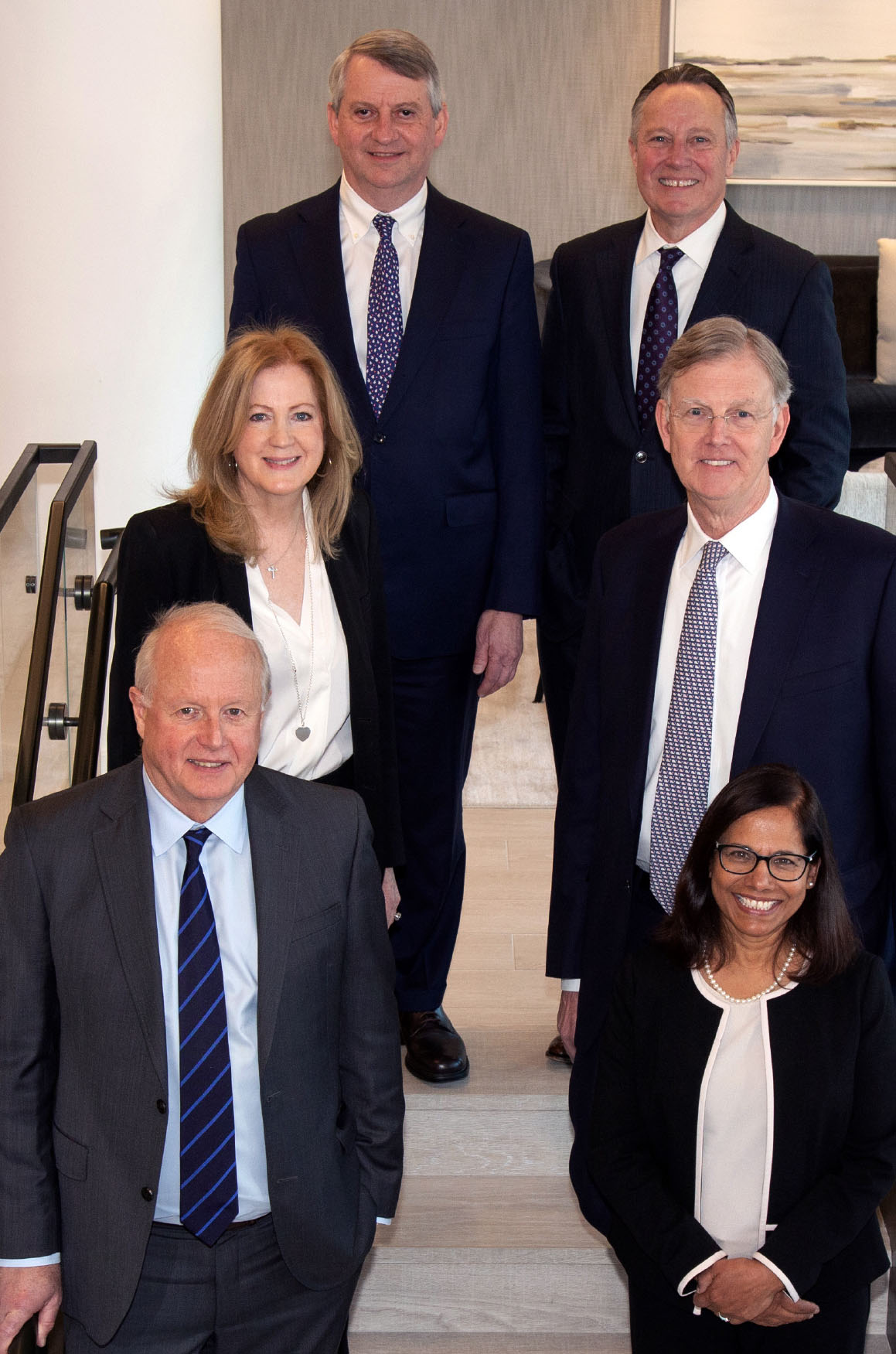
Officers
Pictured top to bottom:
John W. Auchincloss
FAF Executive Director
Timothy L. Christen
Vice Chair
Mary P. Crotty
FAF Chief Operating Officer
Edward C. Bernard
Chair
Steven Hobbs
Vice President, General Counsel
and Assistant Secretary
Manju Ganeriwala
Secretary and Treasurer
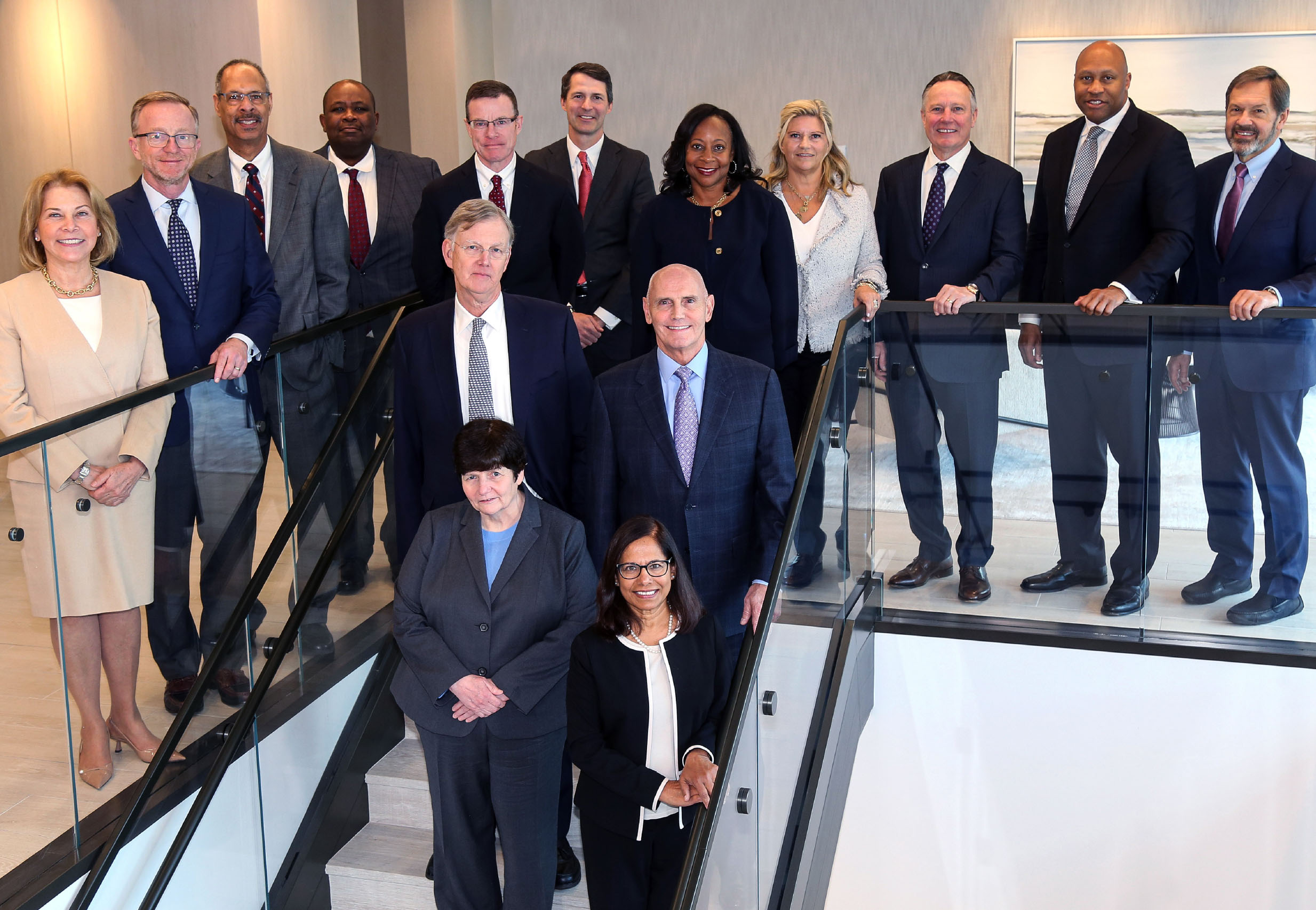
Pictured left to right:
Lynnette Kelly 1,2
Former President and CEO,
Municipal Securities
Rulemaking Board
Bruce T. Herring 1,2,4
Retired, President,
Strategic Advisers Inc.,
Fidelity Investments
Michael B. Clement 2
Clark W. Thompson, Jr.
Professor of Accounting
at the University of Texas
at Austin
Marion M. Gee 5
Finance Director,
Metropolitan St. Louis
Sewer District
Timothy F. Ryan 1,5
U.S. Chairman &
Senior Partner, PwC
Edward J. Goldthorpe 3
Partner, Head of Credit,
BC Partners
Robin L. Washington 5
Former Executive Vice President
& Chief Financial Officer,
Gilead Sciences Inc.
Sarah E. Smith 4
Former Chief Accounting
Officer and Chief
Compliance Officer,
Goldman Sachs Group, Inc.
Timothy L. Christen 1,2
Chairman Emeritus,
Baker Tilly International Ltd.
W. Bryan Lewis 4,5
Vice President and
Chief Investment Officer,
United States Steel Corporation
Lawrence Salva 1,3
Retired, Executive Vice
President and Chief
Accounting Officer,
Comcast Corporation
Pictured on stairs left to right:
Edward C. Bernard 1
Director, LPL Financial
Holdings, Inc.
Retired Vice Chairman,
T. Rowe Price Group, Inc.
Richard N. Reisig 3,5
Chairman, National Association
of State Board of Accountancy &
Principal, Pinion
Elizabeth A. Pearce 4
Retired, Vermont State
Treasurer
Manju Ganeriwala 1,2,5
Retired, Treasurer,
Commonwealth of Virginia
Not pictured:
Diane C. Nordin 2,5
Former Partner and Director,
Fixed Income, Wellington
Management Company LLP
Michael T. Rollings 4
Chief Financial Officer and
Managing Director of Finance,
The Vanguard Group
Shundrawn A. Thomas 3
Founder & Managing Partner,
The Copia Group
Trustee Committees
- 1 Executive Committee
Edward C. Bernard, Chair,
Timothy L. Christen, Vice Chair - 2 Appointments Committee
Lynnette Kelly, Chair - 3 Audit and Finance Committee
Lawrence Salva, Chair - 4 Compensation Committee
Bruce T. Herring, Chair - 5 Standard-Setting Process Oversight Committee
Timothy F. Ryan, Co-Chair,
Manju Ganeriwala, Co-Chair
Message from the
FASB Chair

The FASB was pleased to celebrate its 50th anniversary in 2023. This longevity is a testament to the benefits of the independent standard-setting process. It’s a great asset that allows the FASB to solicit and incorporate diverse views to develop standards that provide our stakeholders with relevant, unbiased information in the most cost-effective way possible. It’s also a great privilege because we must continually earn the right to set standards.
In 2023, the FASB continued to earn that privilege by completing or making substantial progress on our agenda, including three priority areas raised during our agenda consultation: segment reporting, crypto assets, and income tax disclosures. The completion of these three projects—some of which have been on our agenda in one form or another for years—are a major accomplishment made possible by our stakeholders. Their input during the agenda consultation provided critical direction and achievable paths forward on these and other projects that we expect to reach due process milestones in 2024, including software costs, environmental credit programs, and government grants.
Additionally, in 2023, we continued to perform extensive outreach on our proposed standard on Disaggregation of Income Statement Expenses, including hosting a December 13 public roundtable where stakeholders shared feedback on the benefits and costs of providing investors with more detailed information about certain types of expenses, including employee compensation, inventory, depreciation, and amortization.
During the year, the Board also issued final standards on joint venture formations, providing investors and other allocators of capital with more decision-useful information in a joint venture’s separate financial statements. We finalized a consensus of the Emerging Issues Task Force (EITF) with a standard that improves the accounting and disclosures for investments in tax credit structures. Based on another EITF consensus, we issued a proposed standard that would clarify requirements for determining whether certain settlements of convertible debt instruments, including convertible debt instruments with cash conversion features, should be accounted for as induced conversions. We’ll discuss feedback on that proposal later this year.
We continued our post-implementation reviews of the leases, credit losses, and revenue recognition standards to ensure their operability and effectiveness. Based on what we heard from private company stakeholders, we finalized accounting guidance on lease arrangements between entities under common control, providing private companies and certain not-for-profit organizations with a practical expedient.
On November 10, we hosted a public roundtable with stakeholders who have experience adopting the revenue recognition standard. That event elicited new insights from investors, practitioners, and preparers across various industries, who shared their views on the standard’s benefits and costs, issues identified during the implementation process, and other topics. The FASB plans to discuss that input at a meeting in 2024.
This year also provided us with an opportunity to improve our interpretative process. Stakeholders who participated in our agenda consultation provided valuable feedback on how we could better leverage the expertise of the EITF. After completing an extensive review, we have announced changes to the EITF to allow it to be more effective and efficient in addressing technical accounting issues as they arise. We look forward to the first meeting of this new EITF in the summer of 2024.
We continued to encourage academic research and the sharing of those perspectives this past year, engaging with academics at the annual Financial Reporting Issues Conference and various American Accounting Association events.
Finally, in 2023, we set the stage to complete the FASB Conceptual Framework, a project 50 years in the making. In August, we published a new chapter related to the recognition and derecognition of an item in financial statements. By the end of the year, we’d issued a proposed new chapter of our Conceptual Framework related to the measurement of items recognized in financial statements. If finalized by the Board, the proposed chapter would represent the completion of the FASB’s Conceptual Framework.
Every standard has a story. A big part of that story is stakeholder input. Your engagement in our work drives our ability to develop and improve standards that provide investors and other capital allocators with information they will use in their decision-making process. Please continue to share your views on our projects and activities so that we can develop the best standards possible.
Sincerely,

Richard R. Jones, Chair

FASB Members
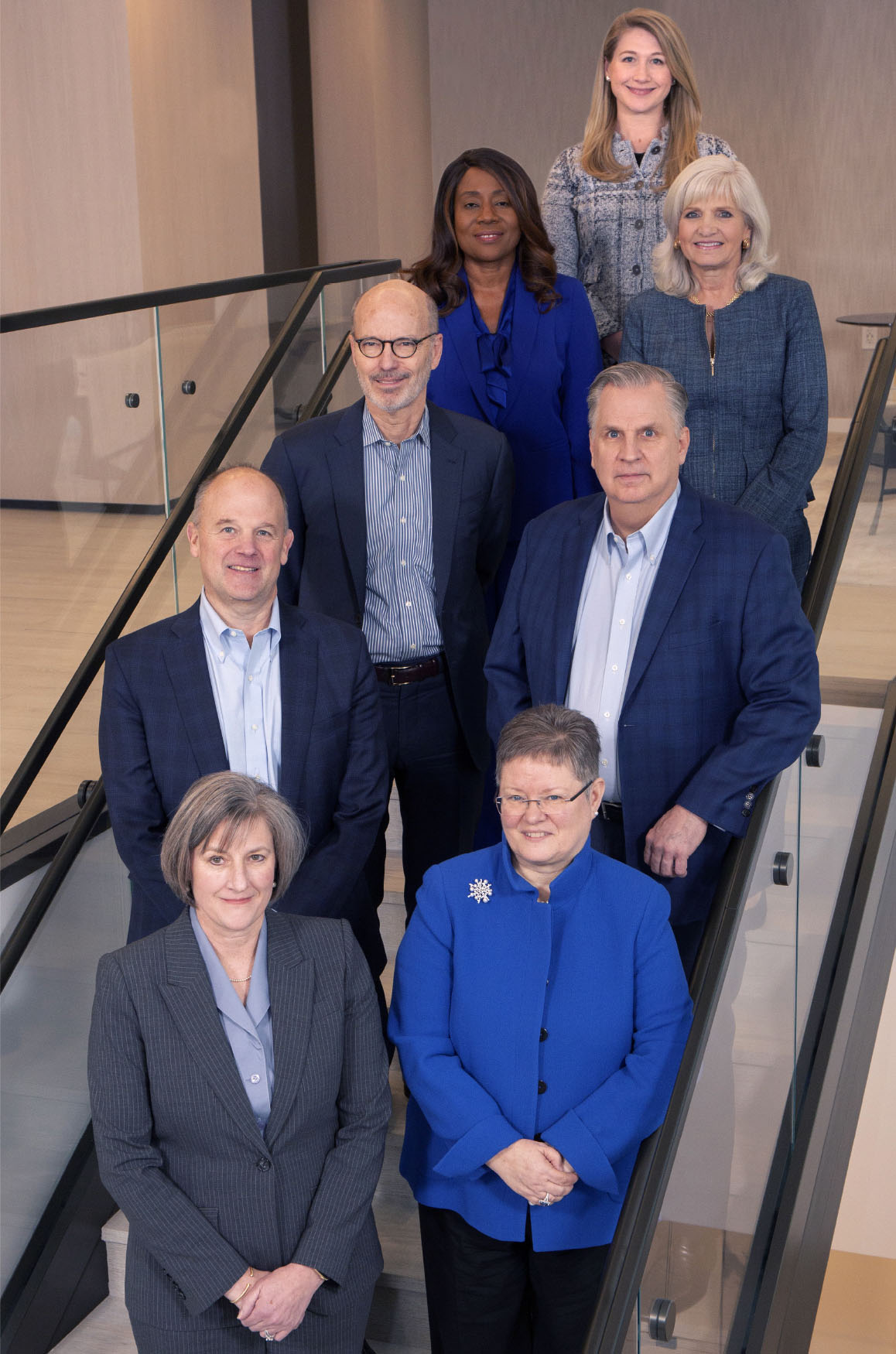
Pictured top to bottom:
Hillary H. Salo
Technical Director
Joyce T. Joseph
Board Member
Christine Ann Botosan
Board Member
Frederick L. Cannon
Board Member
James L. Kroeker
Vice Chairman
Richard R. Jones
Chair
Marsha L. Hunt
Board Member
Susan M. Cosper
Board Member
2023 FASB HIGHLIGHTS
Key Standards Issued in 2023
- Income Taxes (Topic 740): Improvements to Income Tax Disclosures
- Intangibles—Goodwill and Other—Crypto Assets (Subtopic 350-60): Accounting for and Disclosure of Crypto Assets
- Segment Reporting (Topic 280): Improvements to Reportable Segment Disclosures
- Disclosure Improvements: Codification Amendments in Response to the SEC’s Disclosure Update and Simplification Initiative
- Business Combinations—Joint Venture Formations (Subtopic 805-60): Recognition and Initial Measurement
- Investments—Equity Method and Joint Ventures (Topic 323): Accounting for Investments in Tax Credit Structures Using the Proportional Amortization Method (a consensus of the Emerging Issues Task Force)
- Leases (Topic 842): Common Control Arrangements
Other Key Documents Issued in 2023
- Proposed Accounting Standards Update—Income Statement—Reporting Comprehensive Income—Expense Disaggregation Disclosures (Subtopic 220-40): Disaggregation of Income Statement Expenses
- Proposed Accounting Standards Update—Financial Instruments—Credit Losses (Topic 326): Purchased Financial Assets
- Proposed Accounting Standards Update—Debt—Debt with Conversion and Other Options (Subtopic 470-20): Induced Conversions of Convertible Debt Instruments (a consensus of the Emerging Issues Task Force)
- Proposed Accounting Standards Update—Compensation—Stock Compensation (Topic 718): Scope Application of Profits Interest Awards
- Proposed Statement of Financial Accounting Concepts No. 8—Conceptual Framework for Financial Reporting—Chapter 6: Measurement
- Numerous proposed ASUs that resulted in the issuance of final ASUs
Message from the
GASB Chair

This year, the Governmental Accounting Standards Board (GASB) marks 40 years since holding its first meeting on June 14, 1984. Since those early days, our Board and staff have worked with a deep sense of purpose to develop and maintain high-quality accounting and financial reporting standards for state and local governments across the United States.
The standards the GASB has issued and improved over the past four decades have given financial statement users access to information they need to make decisions about governments’ financial information and to assess their accountability. We are very proud of this work, which is the legacy of everyone who has served on our Board and staff over our history.
We look forward to commemorating this milestone over the course of 2024 with celebrations and other activities. We will keep you updated on what is coming up through our website and social media channels.
Key Developments and Accomplishments of 2023
The GASB worked to improve Generally Accepted Accounting Principles (GAAP) for U.S. state and local governments in a number of ways in 2023. The Board issued new guidance on certain governmental risks and proposed standards on disclosure and classification of certain capital assets.
The new and proposed guidance both improve note disclosures to provide users of government financial statements with important information. The new standard on certain risks requires disclosure of risks a government may face related to concentrations or constraints. The proposed guidance on capital assets would provide users with more detail on capital assets which have different attributes.
The Board also made some significant decisions in two ongoing comprehensive GASB projects.
The Board made progress in one of the most challenging areas of the revenue and expense recognition project—accounting for grants and related transactions. The Board is on a path to retain key aspects of the current guidance in this area while incorporating certain improvements, simplifying the accounting, and making it more understandable.
In the financial reporting model project, the Board decided to remove proposed changes regarding governmental funds. The Board then decided to remove a conceptual framework project that dealt with related issues from its agenda as it was no longer needed. A final standard that includes targeted improvements to several areas of the financial reporting model is expected mid-year.
These developments represent major project inflection points that will significantly impact governmental accounting and financial reporting—and provide stakeholders with simplified guidance and users with better information—once they are in practice.
The GASB’s accomplishments in 2023 also included activities outside of technical accounting standard setting, which are important to achieving our mission and serving stakeholders.
Early in the year, we replaced our publishing system organization-wide with a more modern platform and interface. This allowed us to make significant improvements to the Governmental Accounting Research System™ or “GARS,” which is available at no charge to all stakeholders. The enhancements make it easier for stakeholders to access our literature electronically and conduct their research and other work more efficiently.
We also launched the Bridging the GAAP podcast. The series takes a less technical look at key issues the Board is working on and governmental accounting topics more broadly. Episodes have covered the Financial Data Transparency Act (FDTA) and our proposed guidance on Certain Capital Assets while a more recent episode walked listeners through the new version of GARS. We have several episodes planned for 2024, so please listen to them and let us know what you think.
Working Toward the Future
We continued to closely monitor electronic financial reporting, how it is evolving, and how technology is changing the way users consume governmental financial information. Our focus in this area was influenced by the passage of the FDTA in December 2022.
While the FDTA is currently in the rule-making phase and its implementation will rest with the U.S. Securities and Exchange Commission, the GASB is prepared to play a constructive role in this process. As part of this commitment, we have begun work on a financial statement taxonomy, which once complete, governments and others may voluntarily use to prepare machine-readable annual financial statements.
We also continued to focus on improving the efficiency and effectiveness of GASB research. Leveraging technology is allowing us to begin to automate parts of the research process thus making it more efficient. These kinds of advances will ultimately give staff additional time to collect and analyze data on a more comprehensive basis. For example, our use of a new survey tool coupled with improved collection methods is resulting in increased response rates and improved structure of survey response data. I look forward to keeping stakeholders apprised of how these efforts are progressing.
Thank You
The contributions of thousands of GASB stakeholders over our history have been central to what we have accomplished so far—and to what we hope to achieve in the future. Thank you to everyone who has shared their time and expertise serving on our advisory council and task forces, responding to our proposals, sharing your insights in research interviews and surveys, and by offering your support in many other ways. We could not have done it without you and are grateful for your engagement.
I also want to acknowledge the tremendous support we receive from the Financial Accounting Foundation’s Board Trustees and staff. Their contributions to the GASB’s work over our history should not be underestimated.
One of the great pleasures of my time with the GASB so far has been working every day with the talented and dedicated members of our Board and staff. I know this is something I share in common with everyone who has been a part of our GASB family over the past 40 years. Thank you to all of you who have helped make what we have achieved together possible.
Sincerely,

Joel Black, Chair

GASB Members
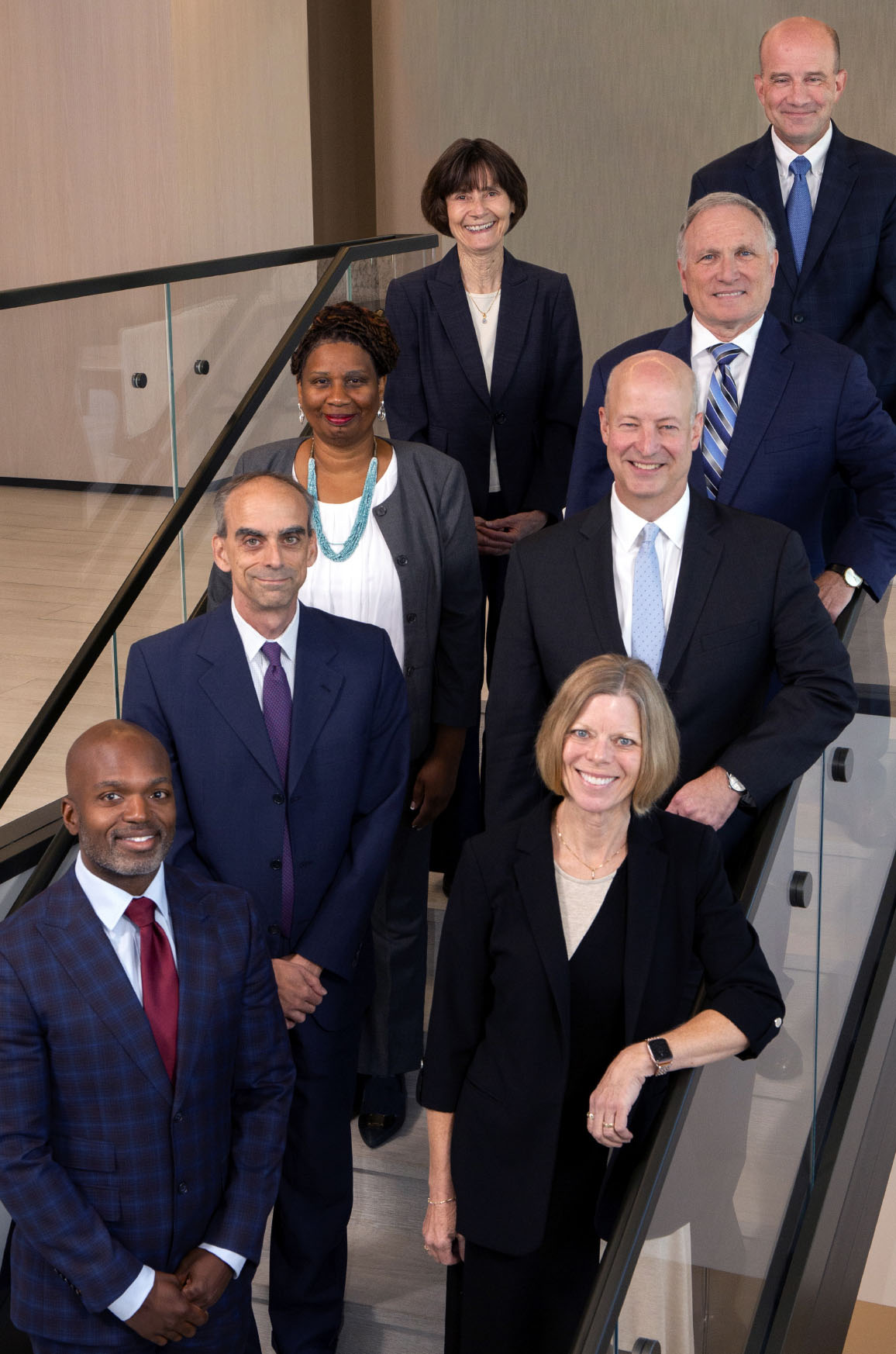
Pictured left top to bottom:
Jacqueline L. Reck
Board Member
Carolyn Smith
Board Member
Jeffrey J. Previdi
Vice Chairman
Kristopher E. Knight
Board Member
Pictured right top to bottom:
Alan Skelton
Director of Research
and Technical Activities
Brian W. Caputo
Board Member
Joel Black
Chair
Dianne E. Ray
Board Member
2023 GASB HIGHLIGHTS
Final Pronouncements
- Certain Risk Disclosures
- Implementation Guidance Update—2023
Exposure Drafts
- Disclosure and Classification of Certain Capital Assets
- Additional Proposal for Implementation Guidance Update—2023

WELCOME
During the past year, the FAF Board of Trustees and the FASB welcomed the following leaders.

FAF
Joined January 2024
Michael B. Clement
Clark W. Thompson, Jr.
Professor of Accounting at the
University of Texas at Austin

FAF
Joined January 2024
Elizabeth A. Pearce
Retired,
Vermont State Treasurer
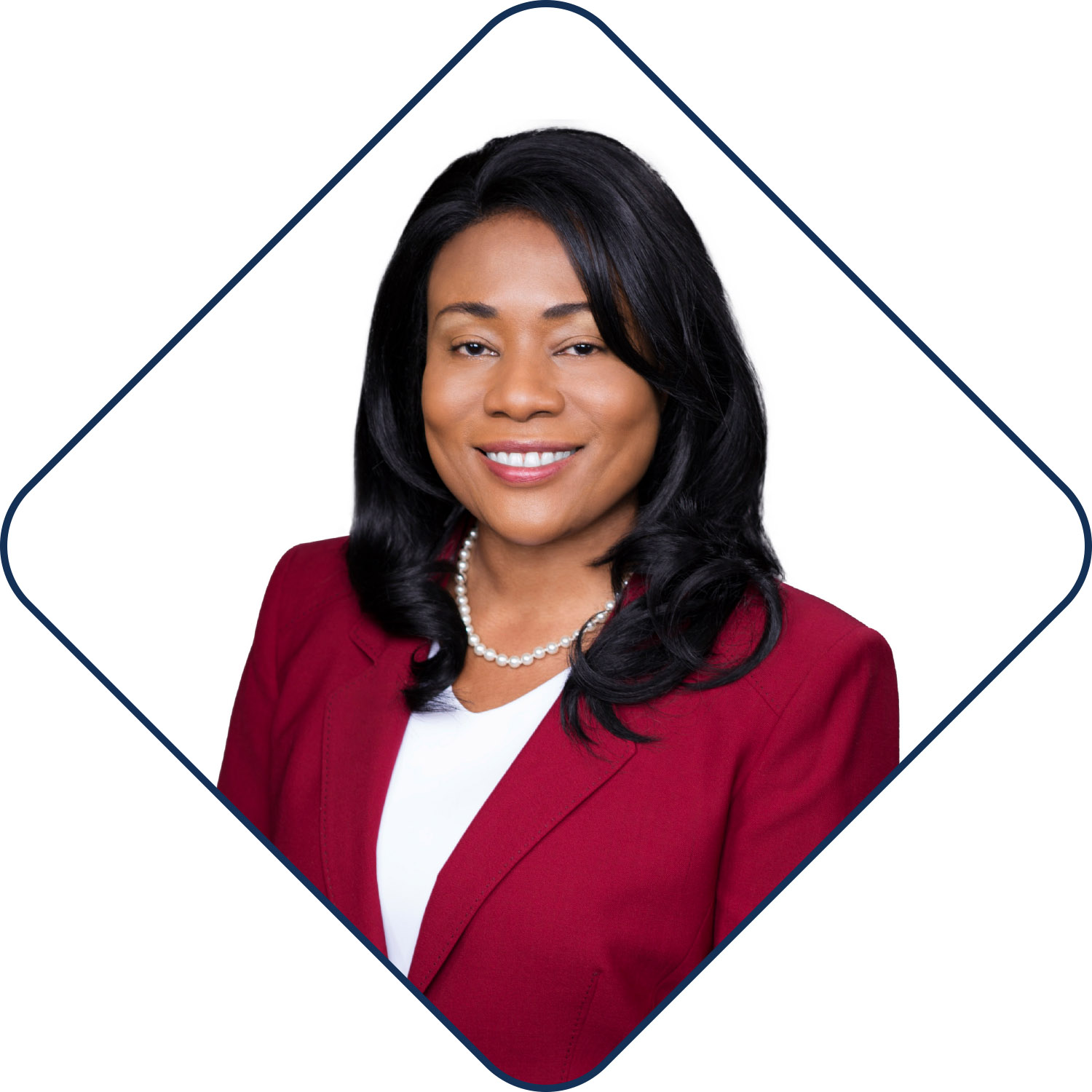
FASB
Joined July 2023
Joyce T. Joseph
Board Member, FASB
THANK YOU
During the past year, the following FAF Trustees and FASB leader concluded their work with us. On behalf of the entire organization, we thank them for their outstanding service.
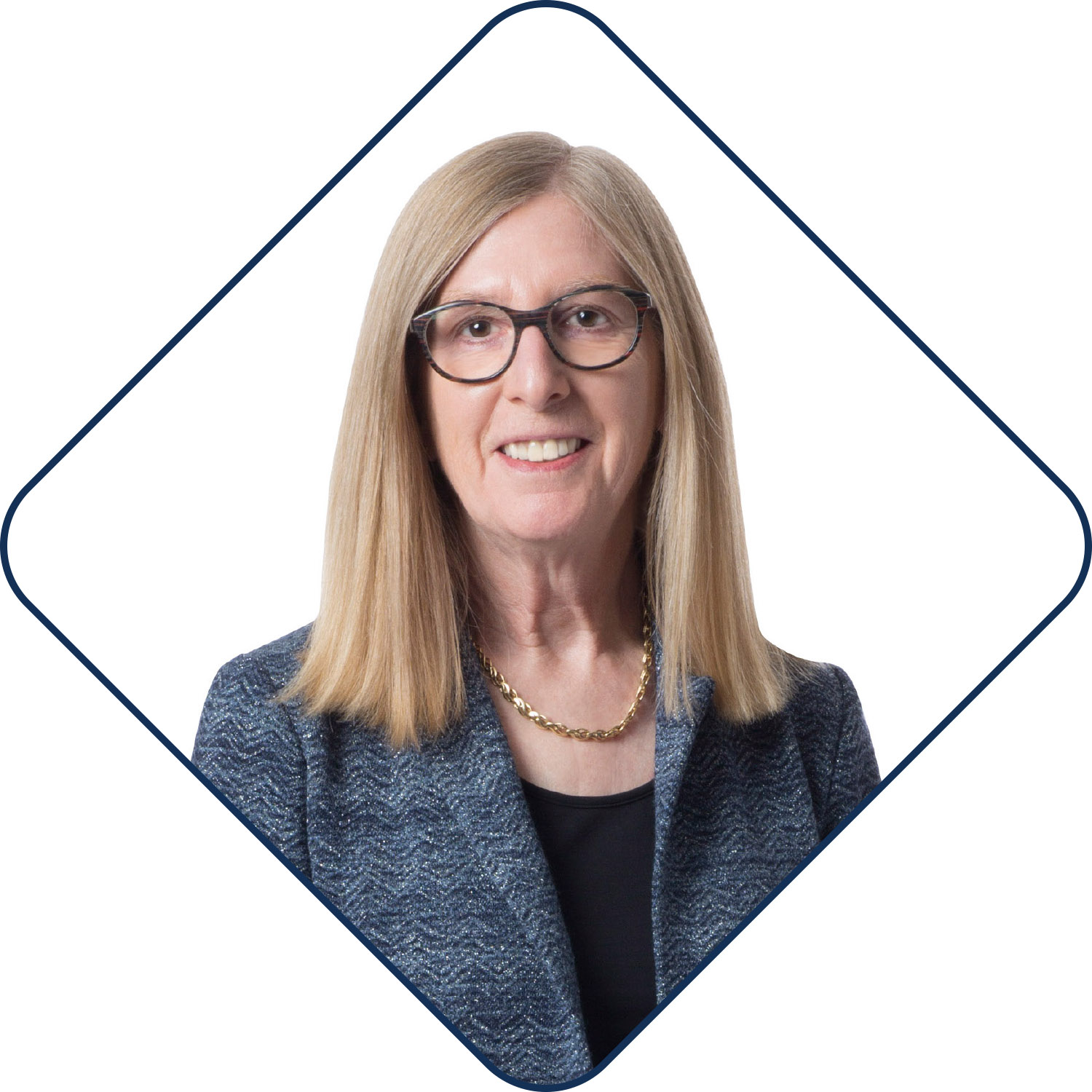
FAF
Completed service in December 2023
Mary E. Barth
Joan E. Horngren Professor of Accounting, Emerita,
Stanford University Graduate School of Business
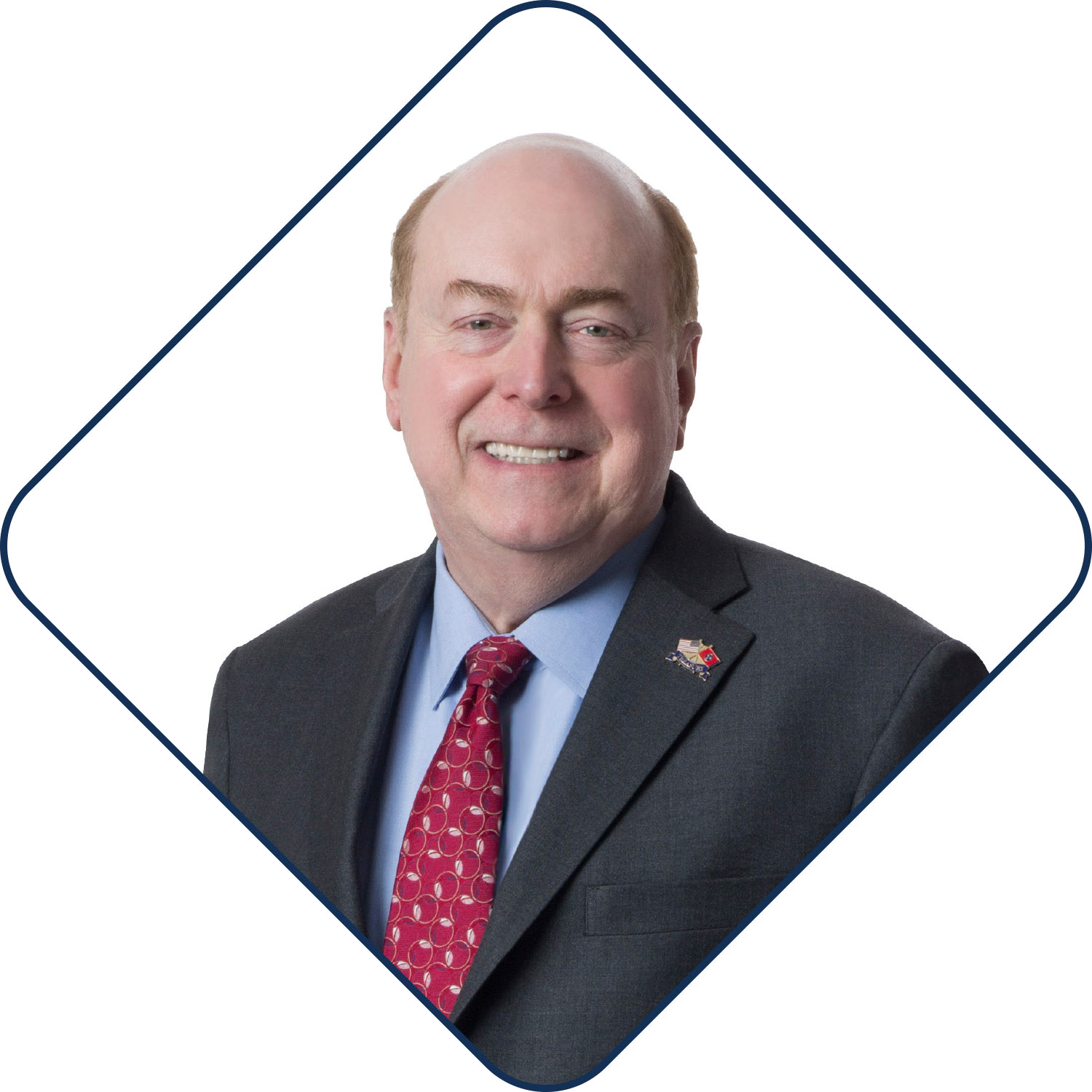
FAF
Completed service in December 2023
David H. Lillard Jr.
State Treasurer, Tennessee
Department of the Treasury

FASB
Completed service in June 2023
Gary R. Buesser
Board Member, FASB





